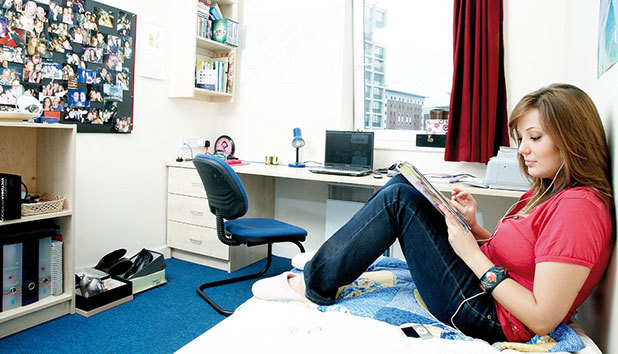The advantages of working with a student accommodation agency like Findspace are pretty self-explanatory to say the least. From lower costs to greater availability and a generally streamlined process from start to finish, there really are countless reasons why working with an agency represents the most sensible choice all-round. However, there will always be those who prefer to go it alone and take matters into their own hands.
Now, while it’s not to say that it’s 100% impossible to find a great place and get a great deal using the DIY approach, there will inherently be more work involved. That’s why it’s important to be aware of several important tips, guidelines and rules to follow, in order to ensure that the decision made is one that doesn’t lead to regret.
So for those preferring to go it alone when selecting their ideal student accommodation, here’s a quick overview of seven of the most important rules to follow:
1 – Take Your Time
First and foremost, never fall into the trap of assuming that because you’re going it alone, you need to rush the process along. Time will always be a factor and there will indeed be certain properties that fill up before others. Nevertheless, rushing a decision is effectively like guaranteeing yourself a result that cannot and will not be the best decision for your needs. Take your time and don’t allow yourself to be rushed – it’s a decision that’s too important to dive into without sufficient time and thought.
2 – Inspect the Place in Full
As you will be carrying out all essential checks unassisted, you need to make sure you give the place a very thorough going over. When you go through an agency, chances are the property will have been extensively checked and vetted on your behalf to ensure it’s every bit above board. When going it alone however, it’s up to you and you alone to make sure all the right boxes are ticked. And this doesn’t just mean a quick glance – it means checking every last inch of the place inside and out.
3 – Ask for Safety Certificates
UK law requires landlords and property owners to retain and produce evidence that their gas installations and systems are safe. Where absent, such individuals are not only breaking the law, but also putting the health and safety of their tenants at risk. As such, it’s important to ask to see these documents and never to even think about taking another step forward until they have been both produced and verified.
4 – Ask Plenty of Questions
Never be afraid to ask as many questions as you can possibly think of regarding the property itself and how it is to live there. For example, you’ll need to know exactly how much you can expect to pay on a monthly basis for utilities, how warm or otherwise the place gets in the winter, when the appliances were last replaced, whether they have decent insurance and so on and so forth. Most quality landlords will divulge all such information without being prompted – others by contrast will tell you little other than the things you ask about directly.
5 – Read Contracts in Full
Without an agency to help you out, you’ll have no choice but to read and study the content of the contract in full. Student accommodation contracts can and should be kept as simple as possible as it’s really not as if the average student can be expected to understand the most complex of contractual terms and conditions regarding property letting. Nevertheless, some landlords seem to go out of their way to produce massively OTT contracts the likes of which are like reading a foreign language. The rule here is simple – never sign a contract you don’t understand every last word of from top to bottom.
6 – Beware OTT Deposits
A quick point but an important one nonetheless – be wary of any landlords who seem to be in the habit of asking for unacceptably large deposits. You’ll have to pay some kind of deposit of course, but if what’s being asked for seems wholly over the top, be very careful about signing that contract.
7 – Consider Reviews and Write-Ups
Last but not least, never get yourself into a deal without first doing a few background checks on the property, the area and indeed the landlord. A quick web search or two can be rather revealing to say the least, so it’s a good idea to never make assumptions or take anything for granted.
